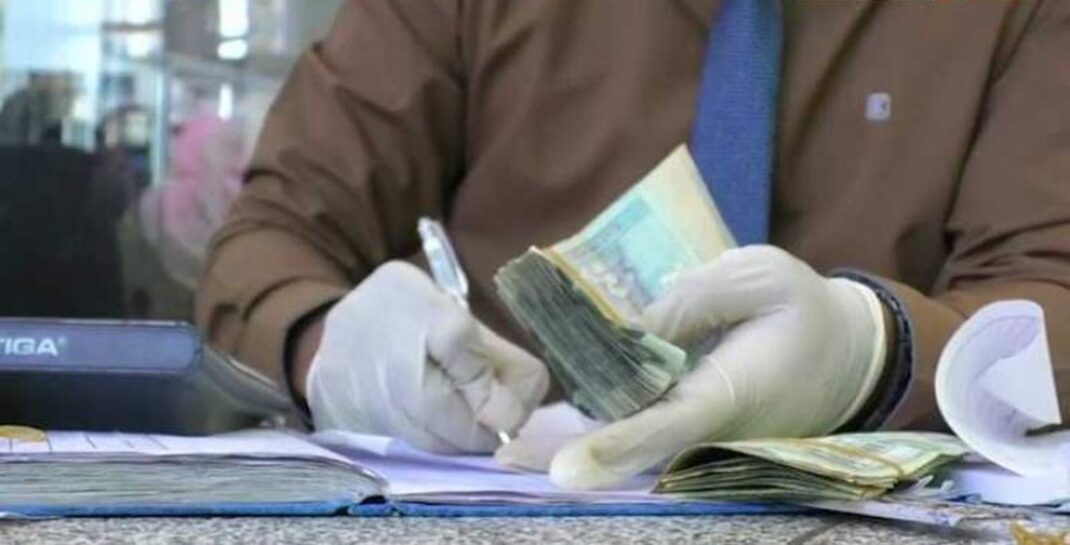Jodi Vittori
 What a UN report on Libya reveals about the nexus of private security operators and illicit financial flows.
What a UN report on Libya reveals about the nexus of private security operators and illicit financial flows.
The allegations made in a United Nations (UN) report released in March had the makings of a bad action movie: in the summer of 2019, there had been an $80 million plot under which private security firms would provide Libyan warlord Khalifa Haftar with helicopters, attack and intelligence aircraft, cyber capabilities, and an intelligence fusion cell to help him take the Libyan capital Tripoli. As part of the plan, there was even a hit list of ten people for capture and/or “termination.”
Due to a series of mishaps, the various mercenary firms involved twice tried versions of the operation (named “Project Opus A” and “Project Opus B” by the UN). The plan had been pitched to Haftar while he was on a trip to Egypt in April 2019 by Erik Prince, an advisor to former President Donald Trump, brother to former Secretary of Education Betsy DeVos, and founder and head of the notorious firm Blackwater.
The plan started to come to light in late June 2019 when a black Zodiac boat with twenty men suddenly arrived in broad daylight in a port in Malta, arousing further suspicions after it was revealed that the boat had been leased out by Maltese arms dealer James Fenech.
The mercenaries had made a rapid escape from Libya the night before after Haftar was angry over receiving different military arms than he had paid for and threatened the team’s management.
Though Prince-associated companies had surfaced in relation to mercenary activities in Libya and other parts of Africa over the last decade, this report provided new details of his operations there.
It also described his and his cohorts’ complex web of shell companies nested within other shell companies linked to messy banking transactions spanning a wide range of secrecy jurisdictions. It is thus a case study in how illicit financial flows are used to hide mercenary activities.
HOW THEY HID IN LIBYA
As part of their inquiry, the UN investigators traced the furball of financing and ownership obfuscation that made Project Opus possible. Take, for instance, the tale of just one aircraft: a Pilatus PC-6. It had been owned by Prince’s company Xe/Greystone and then sold to TST Humanitarian Surveys LLC (a Delaware-based company controlled by Prince) in 2012.
In May 2019, TST sold the aircraft to an Austrian company who registered it in the Netherlands and retrofitted it for aerial surveillance. It was then sold a month later to Lancaster 6 DMCC (one of the key private security firms involved in Project Opus), arriving in Libya on June 25, 2019.
It was still operating there as of December 2020. The plane was deregistered in the Netherlands in July 2019 to purportedly be re-registered in the United Arab Emirates, though Lancaster 6’s leader, Christiaan Durrant (an Australian former fighter pilot and Prince’s friend, business partner, and yachting teammate) told the UN inspectors he did not have the current registration documents.
The United States Can Use Its Influence To Encourage Weaker Links In Global Anti-Money Laundering Efforts To Quickly And Effectively Meet And Even Exceed International Standards, While Also Pushing For Higher Standards And Financial Information Sharing Protocols.
The cover story for Project Opus was just as convoluted. Six French helicopters were purchased in South Africa with the explanation that they would be used for airborne geophysical and hyperspectral surveys in Jordan.
Jordan’s government confirmed that no such survey was planned or approved. The letterhead provided to various officials along the logistics trail was associated with a firm named AustinBridgeporth, which is a partner of UK geologic survey firm Bridgeporth.
The UN investigators report that Bridgeporth (which had at one point also purchased the PC-6 aircraft) is a UK firm majority owned by a company in Gibraltar which is then majority owned by a firm in the Cayman Islands which is majority owned sequentially by two more Cayman firms. The last company in the chain, Frontier Holdings Limited (Caymans), is 100 percent owned by Prince.
The financial payments were just as complicated as the aircraft ownership, using a variety of banks, including Citi Bank in New York, the Hong Kong branch of China Everbright Bank, Emirates NBD Bank PJSC, and even two Emirati Islamic banks.
Often, payments made by one company were for equipment contracted by another company associated with the operation. In the end, the UN investigators could trace only $20 million of the $80 million that had been paid out.
WHY THEY HIDE
And this was hardly the only deployment of mercenaries in Libya. The UN report highlights a veritable UN of other mercenaries on behalf of a wide variety of factions in its civil war, among them Chadians, Sudanese (many linked to notorious warlord and genocidaire Hemeti), Syrians (paid for via a Turkish security company), and about 1200 Russian mercenaries from the infamous Wagner private military firm. They, too, leave a financial paper trail.
Why do these various mercenary groups go through so much trouble obscuring the financing and logistical trails for their operations? Because mercenaryism is illegal under international law and in many domestic courts, including in the United States.
So, too, are war crimes (i.e., if one were to be paid to conduct targeted assassinations on behalf of a warlord). Moreover, the likes of Prince and Durrant want to live openly and well, so hiding the alleged illicit sources of their income is crucial. Prince and Durrant of course have denied all allegations of illegal activities.
Additionally, tax havens are used because they do just as their names imply: they enable individuals to engage in tax avoidance (which is technically legal) and tax evasion (which is not). Who can forget that it was ultimately the tax man that landed Al Capone behind bars?
Money laundering is used to facilitate a variety of bad things; one only needs to watch any episode of Narcos, Breaking Bad, or Ozarks for graphic examples.
Mercenary activities need to be recognized as on par with other criminal behavior that is facilitated by money laundering, and thus, should be part of a global effort to try to throw as much sand in the wheels as possible on illicit financial flows.
The United States can play a key role in this by first ensuring the strongest possible implementation of the 200 pages of anti-money laundering reforms contained in the Fiscal Year 2021 National Defense Authorization Act.
Additionally, anti-corruption and white-collar crime work by the likes of the Internal Revenue Service and the Department of Justice need more political and financial backing.
CLOSING LOOPHOLES IS NECESSARY
With its house in better order, the United States needs to work harder to ensure that closing money laundering and tax loopholes worldwide is a priority, as President Joe Biden has promised to do.
The United States can use its influence to encourage weaker links in global anti-money laundering efforts to quickly and effectively meet and even exceed international standards, while also pushing for higher standards and financial information sharing protocols.
And finally, countering mercenary activity and the arms trafficking that supports it must be a bigger American national security whole-of-government priority.
From Libya to Azerbaijan to Syria, states can purchase a combination of a small number of mercenary specialists for key jobs like cyber warrior, fighter pilot, or drone operator plus a much larger number of lower-skilled “cannon fodder,” empowering warlords like Haftar or highly corrupt but oil-soaked regimes, like that in Azerbaijan, beyond what they could achieve on their own.
This is not just a job for the State and Defense Departments, but also for Treasury and Commerce due to the role of finance and arms exports in mercenary activity.
Project Opus demonstrates the extent that illicit financial flows and secrecy jurisdictions are used to facilitate mercenary activities.
It will take a much more concerted effort by both the United States and the international community to help stop them.
***
Jodi Vittori is a nonresident scholar in the Democracy, Conflict, and Governance Program at the Carnegie Endowment of International Peace. She is an expert on the linkages of corruption, state fragility, illicit finance, and US national security.
________
INKSTICK




